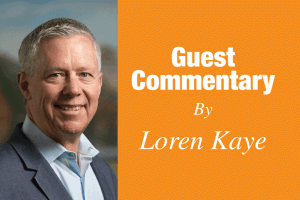 California’s economic success can be credited to two often-related advantages: a skilled workforce and a culture of innovation.
California’s economic success can be credited to two often-related advantages: a skilled workforce and a culture of innovation.
Our workforce has been nurtured by the world’s greatest public institutions of higher education and spurred by a legal environment that fostered competition in employment relationships.
Innovation has long been a touchstone for California’s success: in his annual address to the Legislature, Governor Gavin Newsom reminded them that, “We dominate in research, innovation, entrepreneurialism, venture capital—and remain the world’s fifth largest economy.”
Innovation is more than simply having the idea. It’s also the ability to take the idea to the marketplace, and to test the product, service or technique against the competition. But nobody would take that risk unless the innovation, often called “intellectual property,” was protected against piracy or theft—like any other property.
A bill facing a vote in the second house of the Legislature, SB 1149 (Leyva; D-Chino), would effectively remove the shield of confidentiality over trade secrets and other intellectual property during the early stages of a lawsuit when contending parties engage in “discovery,” where they exchange documents to ascertain factual information to support their cases.
Intellectual property (IP) rights are central to growing the economies, in spurring innovation, in giving large and small firms a range of tools to help drive their success, and in benefitting consumers and society through a continuous stream of innovative, competitive products and services, and an expansion of society’s overall state of knowledge.
So why in the world is the California Legislature trying to upend IP rights that would undermine the state’s innovation leadership?
Blame it on the lawyers.
Under current law, courts routinely issue protective orders during this stage of the proceedings to allow the parties to review each other’s relevant documents without the worry that confidential IP is disclosed publicly. Then, if a party thinks something should be public, they can inform the judge, and the judge will make a decision as to whether it is properly IP, or should be released to the public.
SB 1149, eligible to be voted on by the Assembly this month, would eliminate the issuance of protective orders during the discovery process, unless the owner of the IP makes an argument on a case-by-case basis that disclosure of the IP would “substantially override” the interest in keeping the property confidential—a new and untested standard in the law.
The measure would also add a new presumption in the law: that any factual information concerning a product or condition in litigation over product defects or environmental hazards is public and should be disclosed without a protective order or shield—even a temporary one.
The consequence of this change would be to create a new cottage industry for the trial bar: suing or threatening product or environmental lawsuits that would disclose valuable IP during the discovery process—unless the suits are settled early. In other words, “Nice little innovation you’ve got there—be a shame if your competitors were to learn how you do it.” IP owners would suffer the fate of other business owners and employers who regularly endure the fallout of California’s tilted tort system.
Companies with flawless products who refused to settle (and who ultimately prevail before a jury) would still be losers if their IP is discovered and made public. SB 1149 creates the classic heads-you-win, tails-I-lose situation.
California is a notoriously tough place to start and build a business, with high taxes, oppressive regulations and continuing pressures from a rising cost of living. The last thing the Legislature should consider is damage to our culture of innovation and the legal environment that nurtures that culture.


